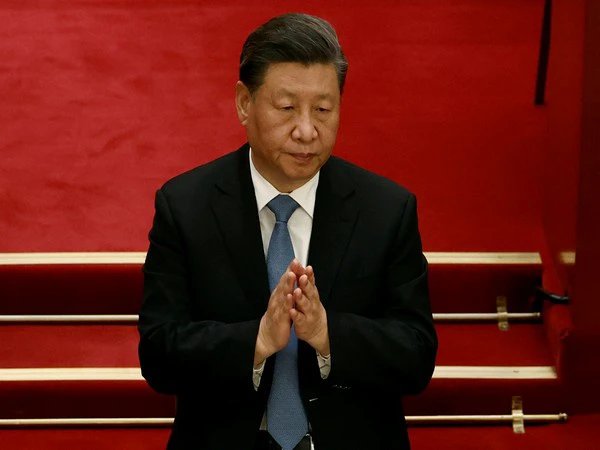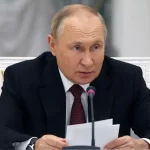China’s Congress confirms path of confrontation: During the first annual session of the fourteenth National People’s Congress (NPC), which concluded on March 13, relations between China and the United States deteriorated even further. Chairman Xi Jinping has signalled that he will not make any conciliatory moves despite China being caught in the surveillance balloon scandal and allegedly considering providing lethal aid to Russia in its war against Ukraine.
The nine-day series of carefully orchestrated meetings allowed Xi to solidify his control over the five-yearly transition of government leaders. Xi had affirmed his dominance over the Chinese Communist Party (CCP) at the 20th Party Congress last October, but this most recent session demonstrated his control over the legislature and executive branch as well. It culminated in the announcement of the Chinese president, vice president, and State Council appointees. Xi was granted a third five-year term as president, but this was inevitable.
Predictably, 2,952 individuals voted in favour with no opposition. Xi was also unanimously re-elected as chairman of the Central Military Commission, which oversees the People’s Liberation Army (PLA).It is believed that Xi and other candidates who were awarded posts ran unopposed in a predetermined, highly clandestine election process. Former executive vice president of the State Council Han Zhen was appointed to the mainly ceremonial position of vice president of China. Xi has absolute authority, and he is using it to convince the Chinese population to resist the West and sow the seeds of war.
In a speech, Xi warned, “Western nations headed by the United States have implemented comprehensive containment, encirclement, and suppression of China, which has brought unprecedented grave challenges to the development of our nation.” Subsequently, Xi urged the nation to “quickerly elevate the military to world-class standards.”
In addition to regime security, one of Xi’s top priorities is to fortify China and its economy in order to deal with protracted tensions and strategic competition with the West. Instead of forging closer ties with the international community, as Deng Xiaoping once did, Xi is once again erecting a vast wall around China. This does not mean he is closing the door on international trade, but he is circling the waggons to prevent foreign influence and reduce dependence on the outside world. He intends for the populace to view the United States as a threat and for the CCP to provide them with a sense of security.
Xi argues that the United States is China’s antagonist while manipulating public opinion for his own ends. The Deng Xiaoping era of reform and opening up, which began forty years ago, is conclusively finished. Xi has demolished numerous tenets that Deng laboured so hard to implement after Mao Zedong’s disarray. Deng strove to never return to the excesses of a one-man dictatorship via collective leadership, for instance.
During Mao’s reign, when CCP officials were in command at every level, the results were disastrous. Deng ceded some control in order for the government to oversee the economy and administer the nation. Now, however, government officials are merely office administrators with rubber stamps, as Xi makes all decisions. Xi has obscured the line between party and government, restricted private sector opportunities, eliminated term limits for himself as leader, and centralised decision-making.
Xi confronts capitalism head-on with his own paradigm. In addition, he is boldly promoting aggression in the face of unanticipated black swan events and grey rhinos, the latter of which refers to threats that are extremely apparent yet ignored.
Xi has rejected the power-sharing strategy of his predecessors and has cracked down on factionalism, corruption, and policy drift. His watchwords are obedience and austerity, and he remains suspicious of market forces and the West while seeking a return to absolute party control, even over foreign companies operating in China.
On March 6, Xi introduced a 24-character phrase that could serve as the new foreign policy mantra for China. Faced with difficulties, Xi urged China to “remain calm, remain resolute, pursue progress and stability, be proactive and accomplish things, unite [under the CCP banner] and dare to fight.” Compare this to Deng’s 24-character strategy: “observe calmly, secure our position, handle matters calmly, conceal our capabilities and bide our time, be adept at preserving a low profile, and never assume leadership.”
Intriguingly, Qin Gang was elevated to the State Council less than two months after he was appointed foreign minister. After becoming foreign minister, it took Wang Yi five years to accomplish the same feat. This is further evidence that China has elevated its foreign affairs system in its thinking. However, Qin Gang spared no time in establishing a combative tenor in relations with the United States.
Also Read | Putin may visit India for G-20 summit, though no decision made yet: Kremlin
In his very first press conference, he warned, “If the United States does not apply the brakes and proceeds to speed down the wrong path, no amount of guardrails will prevent derailment, and conflict and confrontation are inevitable.” China’s “wolf warrior diplomacy” is alive and well, as evidenced by his undiplomatic language.




